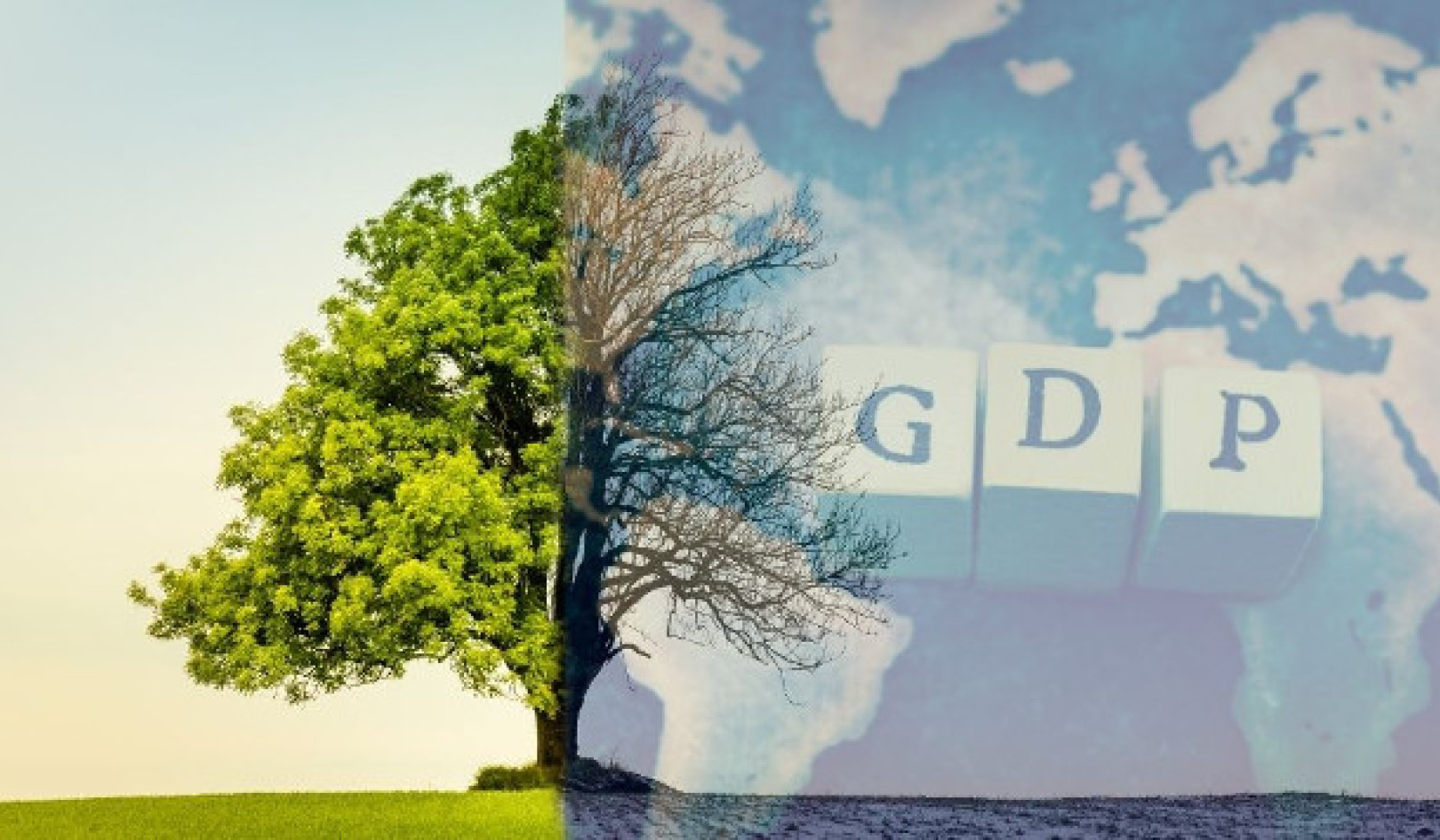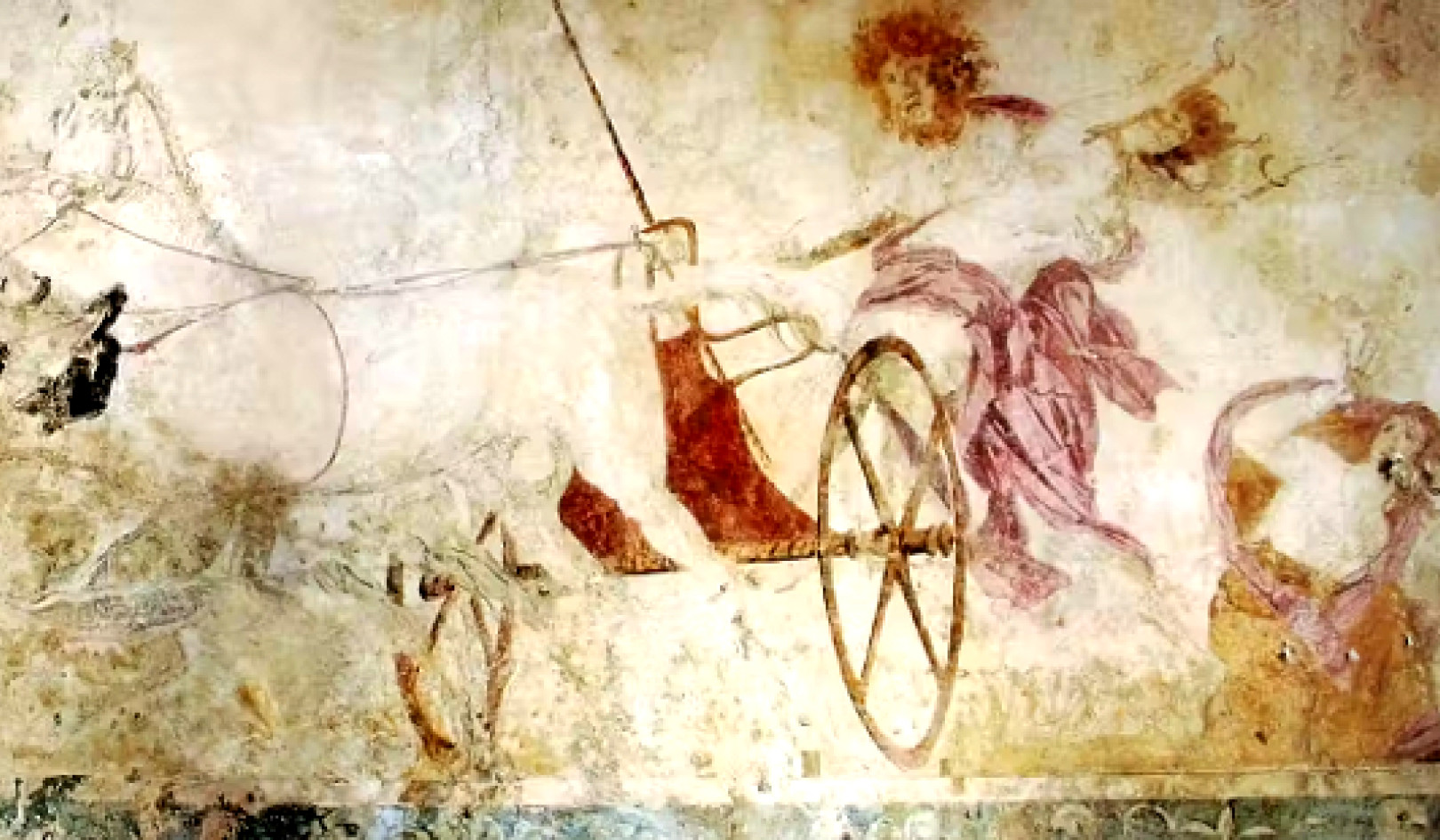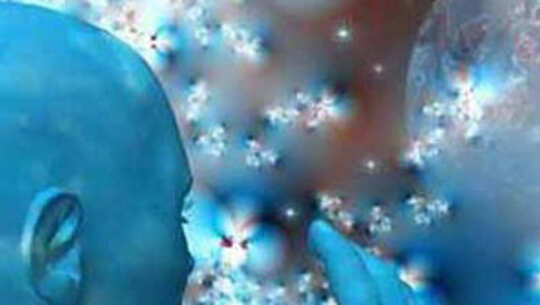
Zoologist and paleoanthropologist Hank Wesselman is a scientist with a foot in two worlds. He spent 30 years researching evolution in the Great Rift Valley in Africa and has also trained in shamanism for more than twenty years. He sees evidence that widespread and transformational spiritual awakening is already underway within Western civilization.
It is no news to anyone that a widespread spiritual awakening is currently taking place — one that has two distinct aspects. On one side, we find a resurgence of religious fundamentalism that embraces a historic view derived from the Middle Ages — a literalist belief that proclaims this world to be the kingdom of a remote, transcendent authoritarian father-God, alternately wrathful and beneficent….On the other side and in opposition to this view, we have the spiritually awakened and expanded perspective of the secular humanists who perceive an omnipresent, immanent Divine Presence of Creative Force existing within all creation, one that is benevolent, life enhancing and life sustaining. (Hank Wesselman in Mind Before Matter)
A resurgence of fundamentalism has certainly been evident, with particularly disastrous results in the Islamic world. But there is plenty of apocalyptic fundamentalism right here within the United States veritably relishing the idea of a worldwide conflagration, a battle between good and evil, as part of the end of days, the tribulation that will herald the second coming. Part of the world scene does look very dangerous.
A Three-Way Battle of Beliefs
When I began writing my first book on this topic, The God Theory, I started my draft with the opening lines:
As we enter a new millennium, Western civilization is deeply divided. Two divergent paths, separated by a chasm, stretch into the distance in front of us. Each leads to a different horizon, as far away as the eye can see or the mind imagine. One is the highway of the conquistador, the other the path of the pilgrim. The choice between them appears to be an all-or-nothing one between science and spirit.
In retrospect, things look considerably more problematic today. In the post 9/11 era, it is evident that we are engaged in a three-way tug of war, not just two. It is not only between science and spirit, it is also between a spirituality that recognizes, exercises, and celebrates the divine creativity that is part of human nature because human nature is a version of God incarnate, and a "spirituality" which would have us be warrior-servants in slavish service to an all too human warlord of a God, an irascible, intolerant, even bloodthirsty tyrant deity.
Reason for Hope
 The term cultural creatives was coined by sociologist Paul Ray and psychologist Sherry Ruth Anderson to describe a large segment of American society whose concerns are more with humanitarian, ecological and spiritual matters than wealth and consumption. Published as The Cultural Creatives: How 50 Million People Are Changing the World it drew upon 13 years of survey studies on over 100,000 Americans, plus more than 100 focus groups and dozens of depth interviews.
The term cultural creatives was coined by sociologist Paul Ray and psychologist Sherry Ruth Anderson to describe a large segment of American society whose concerns are more with humanitarian, ecological and spiritual matters than wealth and consumption. Published as The Cultural Creatives: How 50 Million People Are Changing the World it drew upon 13 years of survey studies on over 100,000 Americans, plus more than 100 focus groups and dozens of depth interviews.
Cultural creatives — amounting in their estimate to 1/4 of the U.S. adult population — did not seem to fit in between the other two segments in society, which they labeled traditional and modern. They are both more inward-directed, seeking to explore their own nature, and at the same time more socially concerned and likely to take part in worthy causes to better society. There may be another 100 million cultural creatives in Europe. And women outnumber men by about three to two.
Enlightenment of Mankind?
Could this be the vanguard of the enlightenment of mankind?
The notion that change is imperative is easily proven. Simple arithmetic shows that with finite resources — one planet of limited size — growth cannot go on indefinitely. It is a logical and mathematical impossibility. The only uncertainty is when things will come to a head.
Unlike any time in the past, mankind is up against genuine global limits and planet-wide impacts. That has never happened before, so today's claim of historical uniqueness is valid, and should not be discounted as just the latest doomsday jeremiad.
Are These the Worst of Times?
In his recent book, The Post American World, Newsweek commentator Fareed Zakaria discusses some interesting contradictions. He first points to a poll showing that 81 percent of Americans think that the United States is on the wrong track. Neither the poll not the book concern themselves with spiritual matters, but the level of anxiety and pessimism appear to Zakaria to go beyond unemployment, foreclosures and terrorist threats.
Call it existential fear, call it a spiritual void. He writes:
American anxiety springs from something much deeper, a sense that large and disruptive forces are coursing through the world.
Living in Dark and Dangerous Times
So this confirms the obvious: we are living in dark and dangerous times. Correct?
Actually the answer is "not exactly." As Zakaria points out, a University of Maryland team of scholars which has actually looked deeply into the facts finds that "wars of all kinds have been declining since the mid-1980s and that we are now at the lowest level of global violence since the 1950s." The data indicate that the present time may be one of the most peaceful in recorded history.
Mark Twain, of course, famously said that there are "lies, damned lies and statistics." Nevertheless, in terms of numbers things are better than they seem.
Emerging Transformational Spirituality
A transformational spirituality does seem to be emerging between atheism and fundamentalism. The most important feature of this transformational spirituality is the realization that religious institutions are not necessary to connect with God. That power lies within us.
After all, we literally are incarnations of God, so where better to look for contact with God than within ourselves? Our consciousness is ultimately one with God's and that makes it creative. If enough of us activate our creative consciousness in a positive way, we can create "A New Earth" as Eckhart Tolle proposes.
Reprinted, with permission of the publisher,
New Page Books a division of Career Press.
©2010 Bernard Haisch. All rights reserved.
Article Source
The Purpose-Guided Universe: Believing In Einstein, Darwin, and God
by Bernard Haisch.
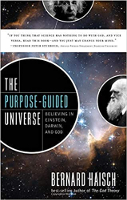 A more rational concept of God is called for. As astrophysicist Sir James Jeans wrote, "the Universe begins to look more like a great thought than like a great machine." Despite bestsellers by Christopher Hitchens, Richard Dawkins, and Sam Harris that have denounced the evils of religion and proclaimed that science has shown that there is no God, The Purpose-Guided Universe shows how one can believe in God and science.
A more rational concept of God is called for. As astrophysicist Sir James Jeans wrote, "the Universe begins to look more like a great thought than like a great machine." Despite bestsellers by Christopher Hitchens, Richard Dawkins, and Sam Harris that have denounced the evils of religion and proclaimed that science has shown that there is no God, The Purpose-Guided Universe shows how one can believe in God and science.
Click here for more info and/or to order this book.
Also available as a Kindle edition.
About the Author
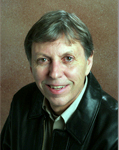 Bernard Haisch, PhD is an astrophysicist and author of The God Theory and more than 150 scientific publications. He was a scientific editor of the Astrophysical Journal for 10 years. His professional positions include deputy director of the Center for Extreme Ultraviolet Astrophysics at U.C.-Berkeley; and visiting scientist at the Max-Planck-Institute für Extraterrestrische Physik in Garching, Germany. He was also editor in chief of the Journal of Scientific Exploration. Prior to his career in astrophysics, Haisch attended the St. Meinrad Seminary as a student for the Catholic priesthood. Visit his website atwww.thegodtheory.com
Bernard Haisch, PhD is an astrophysicist and author of The God Theory and more than 150 scientific publications. He was a scientific editor of the Astrophysical Journal for 10 years. His professional positions include deputy director of the Center for Extreme Ultraviolet Astrophysics at U.C.-Berkeley; and visiting scientist at the Max-Planck-Institute für Extraterrestrische Physik in Garching, Germany. He was also editor in chief of the Journal of Scientific Exploration. Prior to his career in astrophysics, Haisch attended the St. Meinrad Seminary as a student for the Catholic priesthood. Visit his website atwww.thegodtheory.com





















